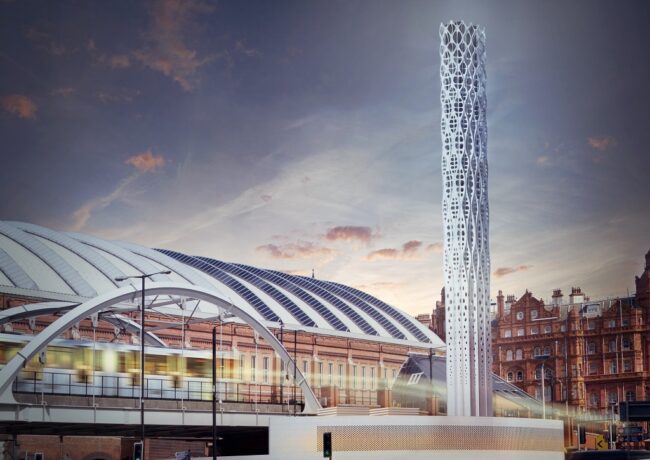Manchester executive to rubber-stamp energy scheme and SRF
Approving plans for the Civic Quarter Heat Network and an updated strategic regeneration framework for Great Jackson Street are the two key recommendations that will go before Manchester City Council’s executive at its meeting on 10 January.
The executive will be asked to endorse the proposal to set up a holding company that will allow the city council to proceed with sustainable energy supplier Vital Energi on the £18m heat network scheme, which will be based at Manchester Central and also serve the Town Hall Extension, Heron House, Manchester Art Gallery, Central Library, the Midland Hotel and One St Peter’s Square.
An application is lodged for a £2.87m capital grant from the Heat Network Investment Project, which is funded by the Department for Business, Energy and Industrial Strategy, but the project must be committed by 31 March this year to qualify.
The project is also entitled to a grant from the European Local Energy Assistance grant to help cover external technical, legal and financial services costs.
The proposed operating vehicle will be a separate legal entity to the council, although wholly owned by it, and will be responsible for funding both the ongoing operational costs and overheads of the company. The final business case is currently being finalised and the details will be reported to the March executive meeting.
It is expected that over the duration of the business plan the company will generate a surplus from its trading activity.
Following a six-week public consultation exercise, the executive will be asked to endorse the principles outlined in the SRF update with the intention of it becoming a material consideration for planning purposes. Only 11 responses were received from the 2,115 consultation letters sent out.
The Great Jackson Street area, typified by surface car parking and light industrial units, has long been a key priority for the city, with the first outline being written in 2007 as the Southern Gateway framework, before the formal adoption of the SRF in July 2015.
With Renaker the most prominent of developers – its four Owen Street towers of between 44 and 64 storeys each, comprising 1,508 units are at various stages – a number of proposals have made their way through planning since, with the area becoming the main cluster for high-rise development in Manchester.
Much of the comment received refer to placemaking and management of space, with the report stating that in time it envisages an over-arching management company taking a lead on the area. Zenith is to manage all holdings developed by Renaker, which also owns the key Crown Street plot, an area that can deliver a further 5,000-plus apartments.
The main change in the update to the SRF is a strengthening of the requirement for flexible space at ground floor level to provide amenities as the residential community grows.




